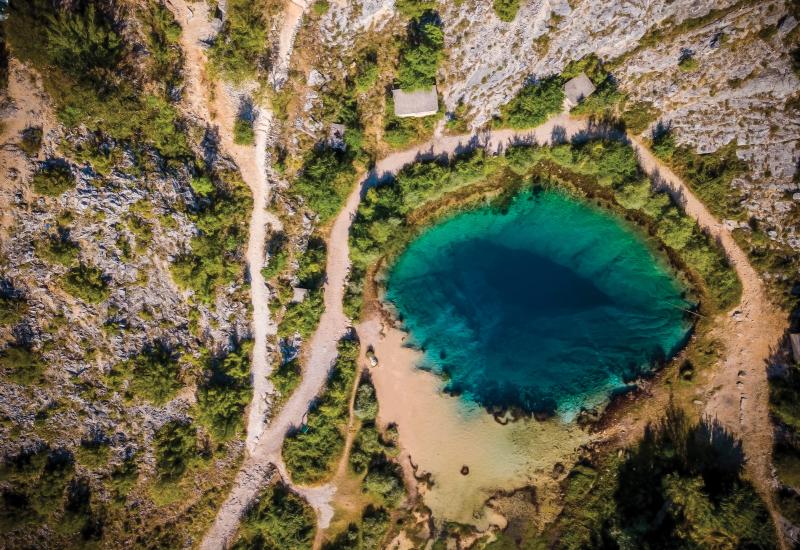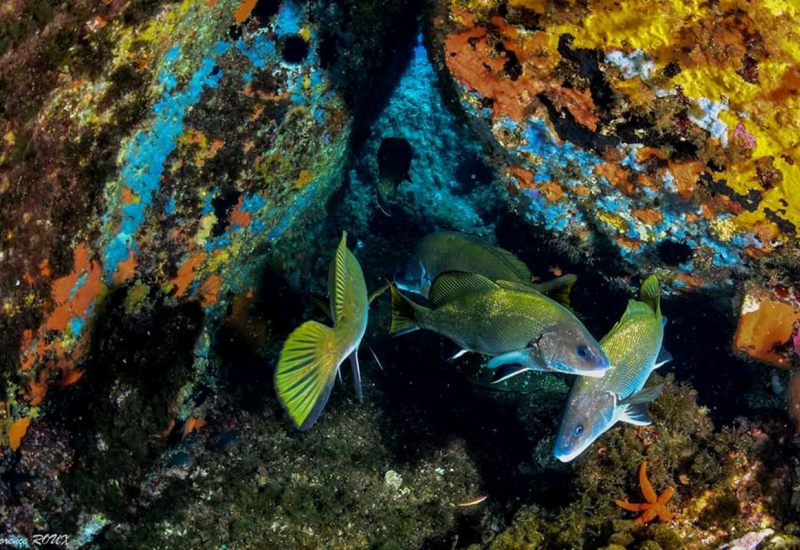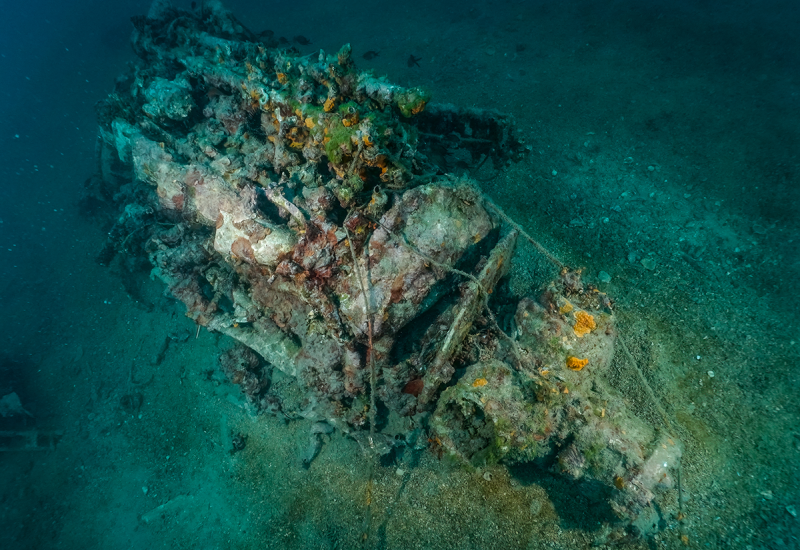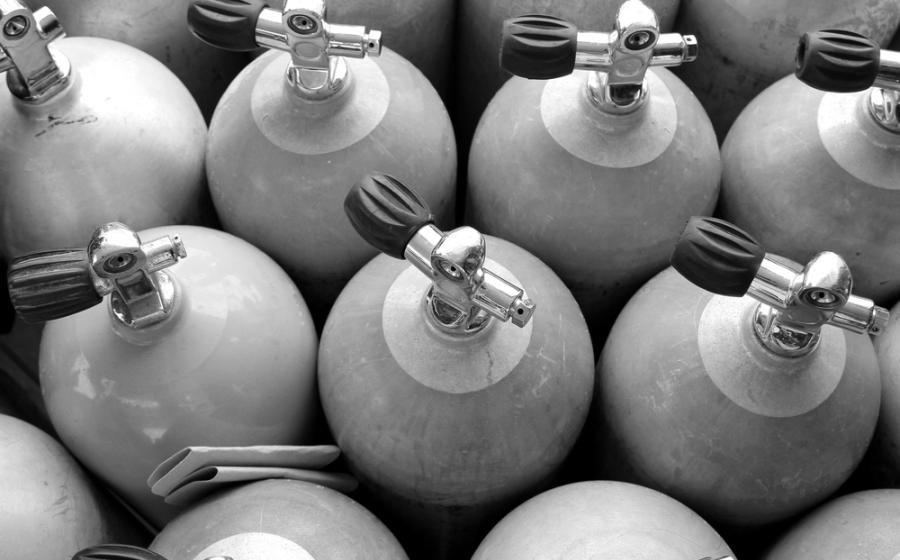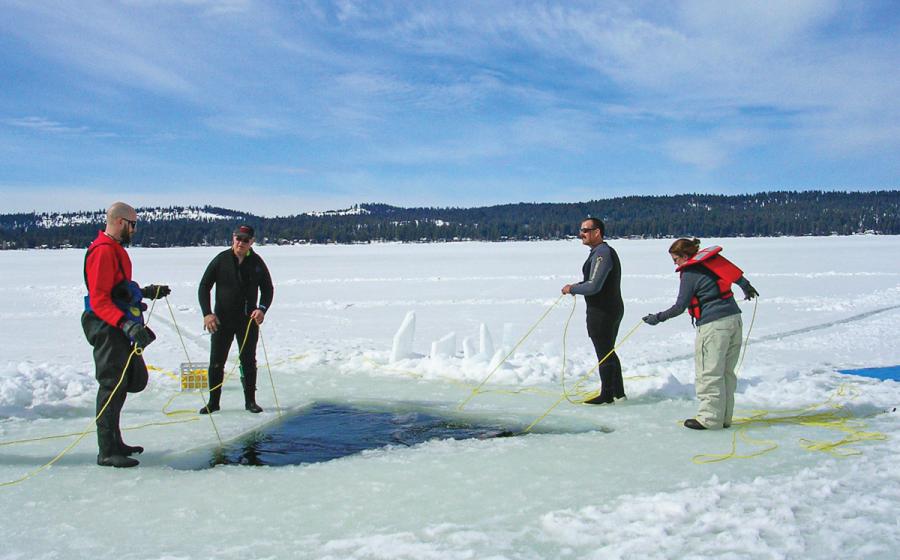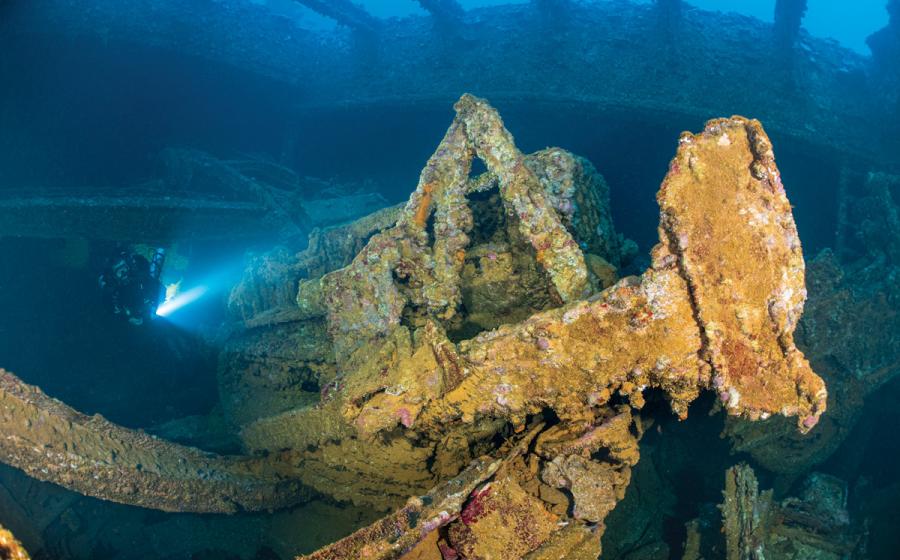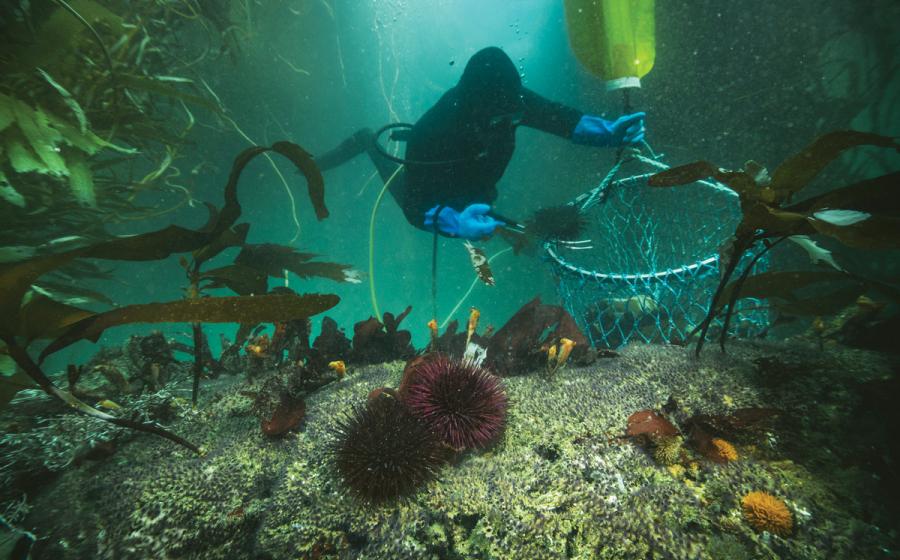Five Great Places to Dive Near Lisbon
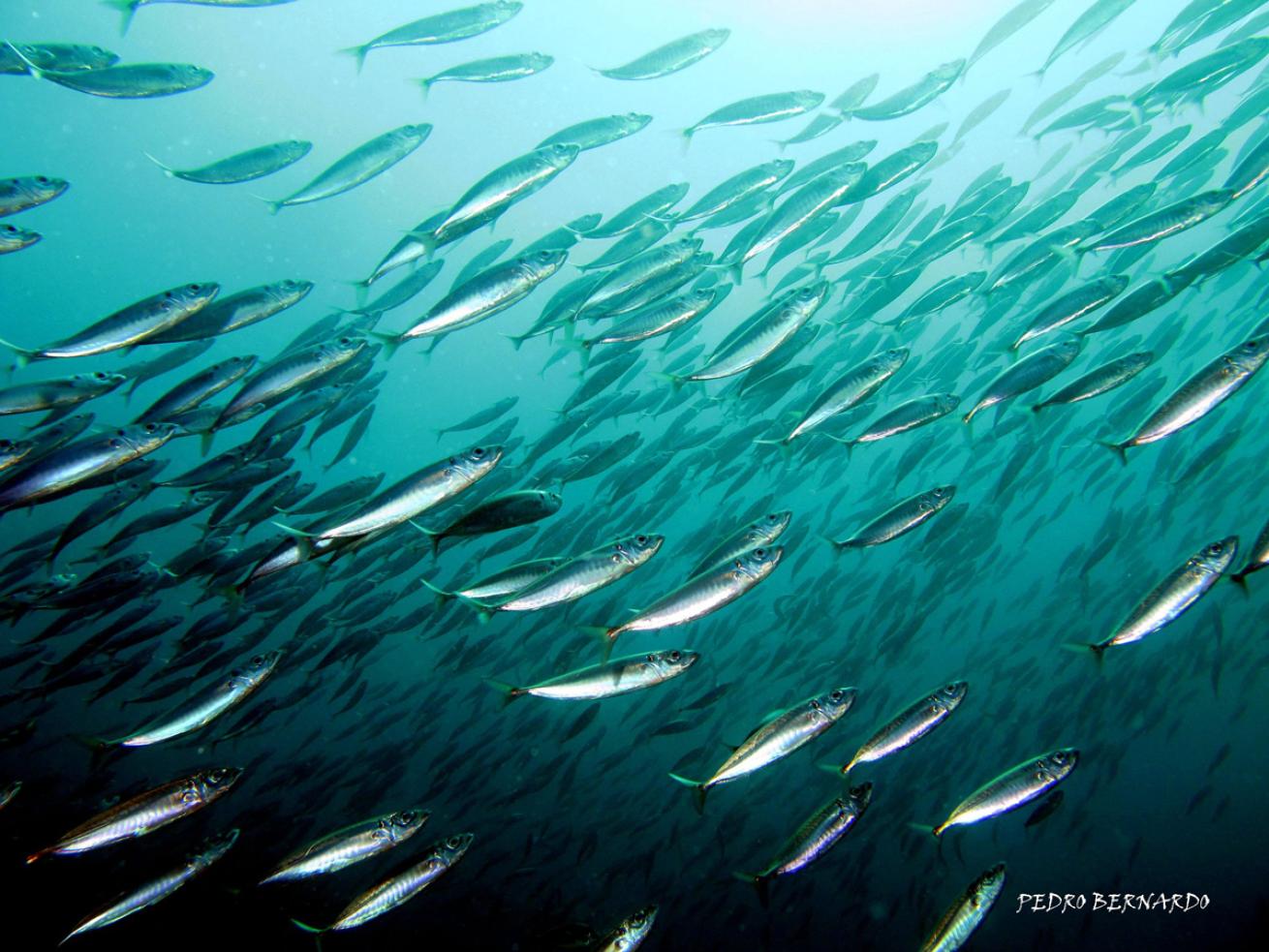
Pedro BernardoShoals of silvery fish are a common sight underwater.
Europe stole my heart long ago when I vacationed there as a kid with my family and tasted Coca-Cola flavored Haribo gummies for the first time in Germany. And I like to think my appreciation for the pleasures of the Continent have only evolved from there (The cheese! The wine! The cheese and wine together!).
But once I became a scuba diver, I set my travel sights on far off places in the Pacific any chance I got—my goal to get as close as possible to the Coral Triangle’s heart.
Europe’s cities always beckoned me back for culture and all that famous food, but I never really thought about diving when I was there enjoying the urban life—until now.
On a recent scuba diving trip to Portugal, I realized that if there’s any spot on the continent where the urban European good life segues seamlessly with killer diving, it’s Portugal and its gorgeous, friendly and affordable capital city, Lisbon.
Within 30 minutes of Lisbon’s famed fado bars in the Bairro Alto, you can be scuba diving among schools of fish that rival the abundance (if not the tropical colors) of the Caribbean in Portugal’s admittedly chilly waters, where average water temps tend to hover in the 60s for most of the year. Wetsuit tip: if you’re not diving dry you’ll want your 7 mm, boots and hoodie here, even during the summer months.
To make things easy and pack in as much diving as possible, I booked all my dives through Portugal Dive. Owned and operated by Lisbon native, Arlindo Serrao. It’s a boutique dive concierge of sorts through which you can book everything from boat trips, gear rental and transport to topside tours and restaurant reservations for the Portuguese apres-dive feasts of your dreams.
The biggest surprise in a country full of topside wonders is the truly great diving that awaits so close to a major European capital—most of it undiscovered by even Portuguese divers.
“There are dozens of spots within an hour radius of Lisbon,” says Serrao. “Europeans who come to dive here are often surprised to find such great conditions for diving so close to home. Nearly every European capital is within a two or 2.5 hour flight of Lisbon.”
From recreational diving and tech diving to cave diving, shipwrecks and more, you can find it near Lisbon, “and you almost have to shake away the fish that approach, there are that many,” says Serrao.
After a week diving some of Lisbon’s best backyard sites in shoals of silvery fish, I can confirm that’s true.
Next time you’re in Lisbon, put these five fun dives—all within an easy day trip of the city center—on your list of must-sees:
SESIMBRA
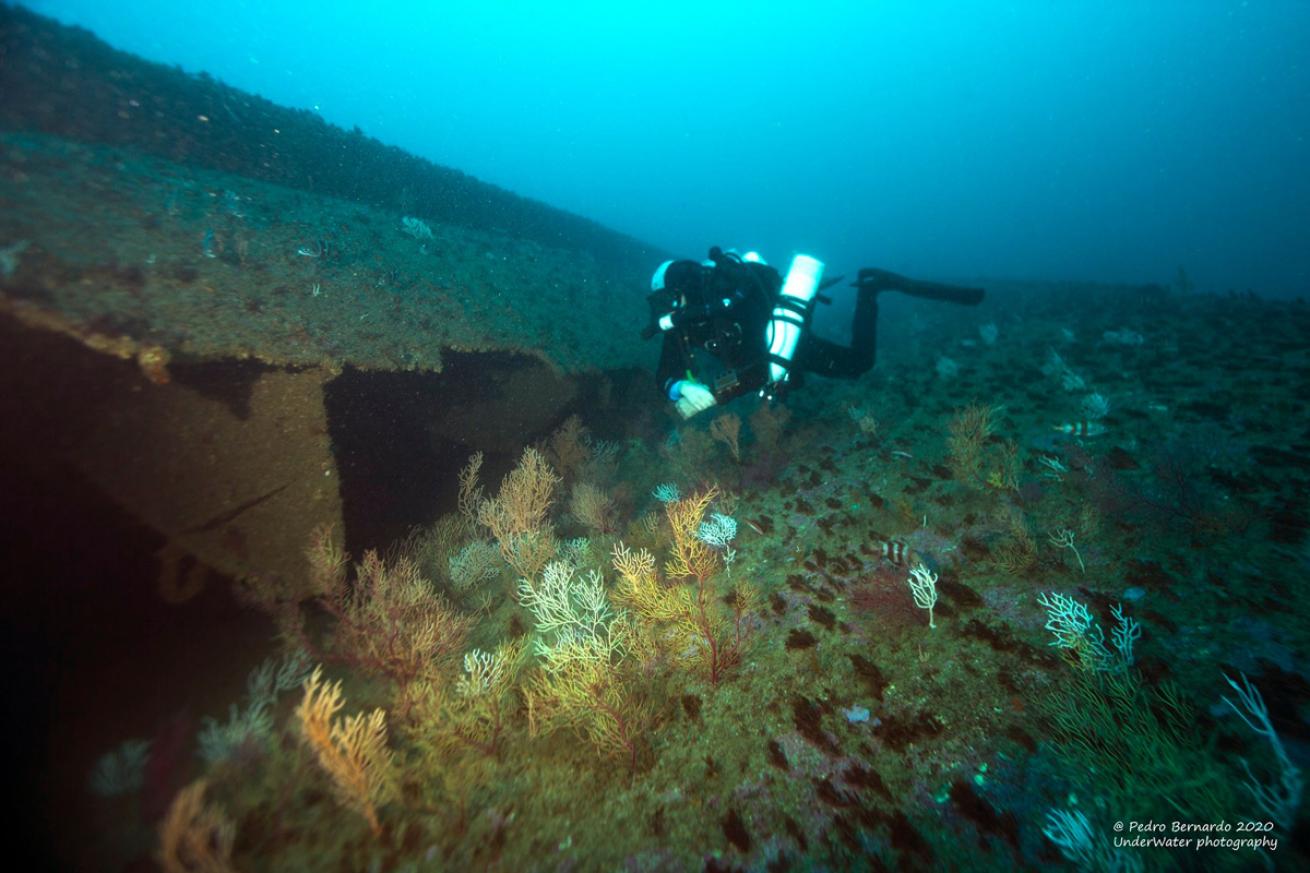
Pedro BernardoThe River Gurara shipwreck is a popular site in Sesimbra.
Some 25 miles south of Lisbon, the working fishing village of Sesimbra has so much topside charm you might find yourself tempted to stay dry and eat your way through the waterfront seaside restaurants near the port. But then you’d miss finning along the wreck of the River Gurara (aka the River Popa), a Nigerian freighter transporting trees from Africa that split in two after hitting the rocks during a fierce winter storm in 1989 just offshore from Cape Espichel. With a maximum depth of around 78 feet, the ship’s hulking metal skeleton is caroused by spider crags, and conger eels ribbon out from its bow to greet divers.
Dive Club Cipreia in Sesimbra runs regular trips to the River Gurara and other sites within a short boat ride of the marina and offers PADI specialty courses, too, including dry suit and side mount diving.
FONTE DA TELHA
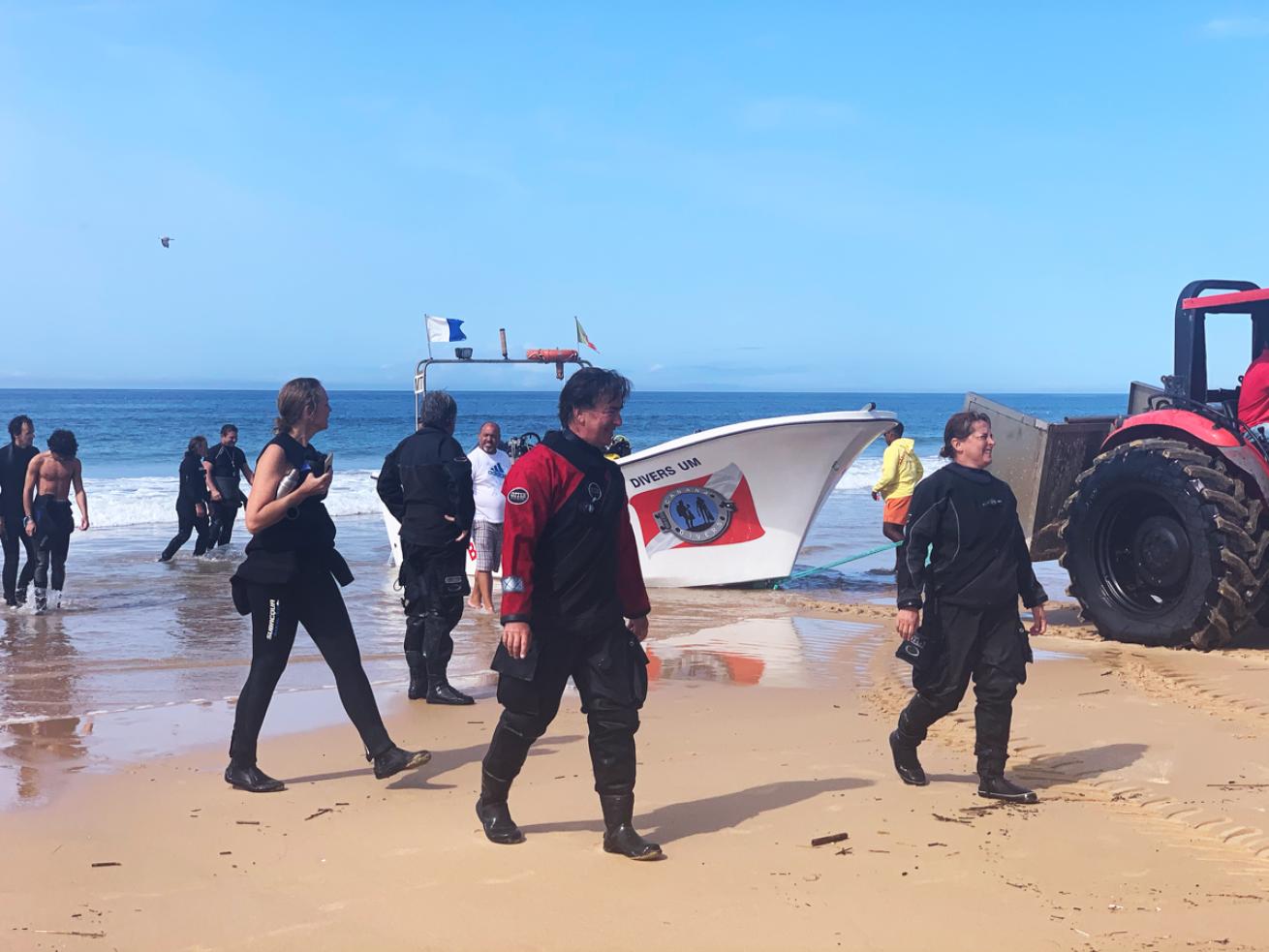
Courtesy Portugal DiveDivers exit the water as the dive boat is pulled to shore by a red tractor.
To feel like you’re part of the local dive club on vacation, I highly recommend heading about 15 miles southwest of Lisbon to the long stretch of beach backed by sandstone cliffs at Fonte Da Telha for a dive with Cabana Divers. The dive shop is a rustic beachfront shack with outdoor showers and million-dollar views. And you’ll push right off from the beach (with the help of a big red tractor) in the boat to dive super-fishy sites like Pedra de Lagoa, a canyon where you might spot cuttlefish and scorpionfish when you’re not finning through shimmering clouds of horse mackerel, pouts and sea bream. Lunch overlooking the Atlantic Ocean at Cabana Beach Bar, right next to the dive shop, is a must once you towel off. The species you were just diving with are likely to be served on the menu and the owner (also the dive boat captain) might come around and offer you a shot of his homemade persimmon grappa (ah, Europe).
PENICHE
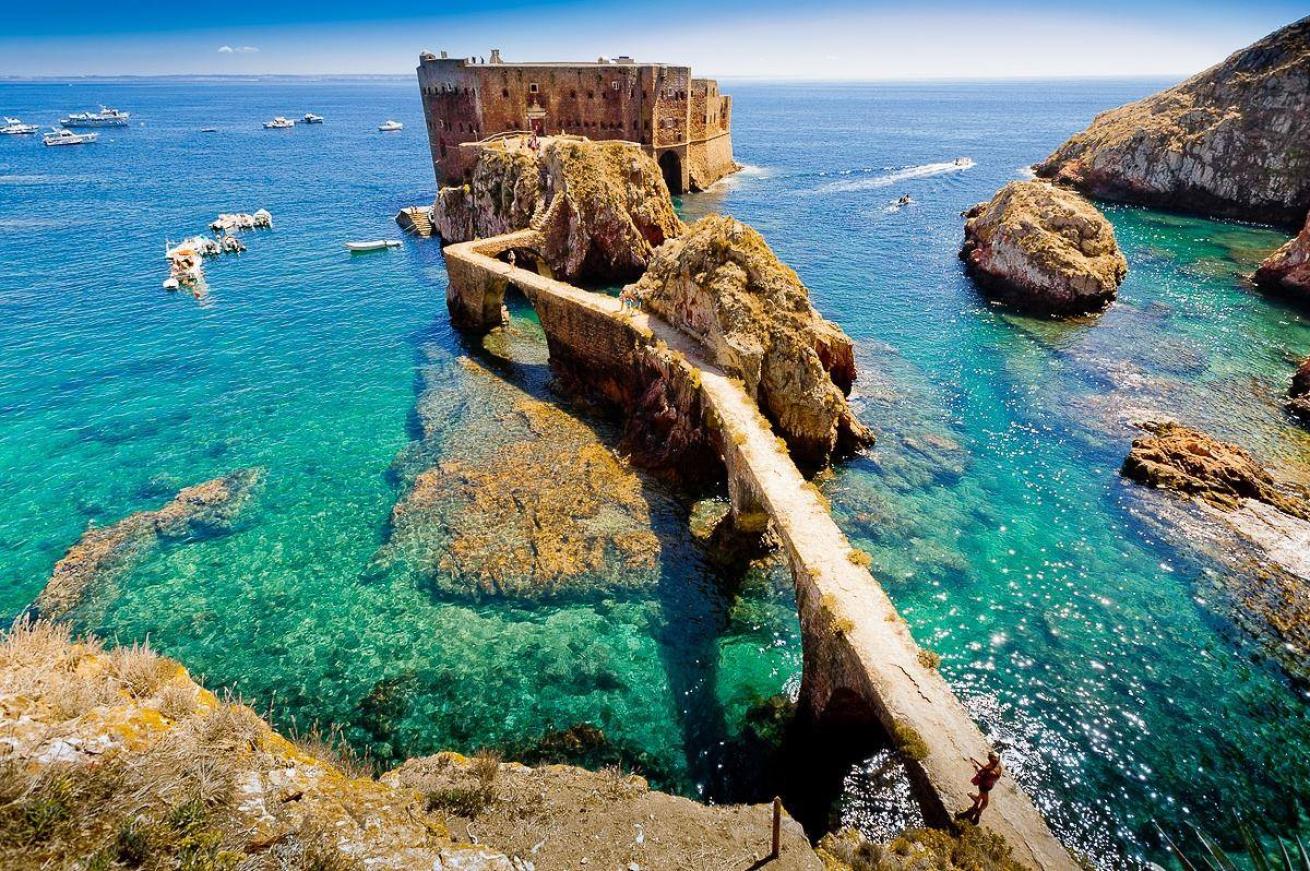
Courtesy Visit PortugalBerlengas Islands
Drive about 63 miles north along the coast from Lisbon and you’ll get to Peniche, a Mecca among the surfer set drawn to the area’s consistent beach breaks like the world-famous Supertubos. Divers know to head here, too, for offshore access to some of mainland Portugal’s very best diving in the UNESCO Berlengas Biosphere Reserve, located six miles from the Peniche marina, where the Mediterranean and Atlantic climates mix. Schooling triggerfish and mola molas (ocean sunfish) are regularly seen in the caverns and canyons flanking the current-washed archipelago. The wreck of the Primavera—a 2000 ton Italian steamer that’s been underwater since 1902—is carpeted in corals and loaded with lobsters and nudibranchs. Haliotis runs regular trips in speedy Zodiacs to reach the islands, where you can spend your surface interval doing a little hike to Fort of São João Baptista, which dates to 1502 and is accessible via several hundred steep steps that descend to an islet offshore.
PORTO COVO
It’s a bit further south along the coast (110 miles from Lisbon) to reach Porto Covo in the storied Alentejo region, said to have one of Europe’s most spectacular coastlines. Tourism still operates on a small scale here, and boutique operators like Ecoalga take just six divers out at a time. At sites like Baixa do Tiago, the water is usually crystal-clear thanks to the sandy bottom and underwater rocky cliff terrain, and dolphins and pelagics can sometimes be seen cruising the depths.
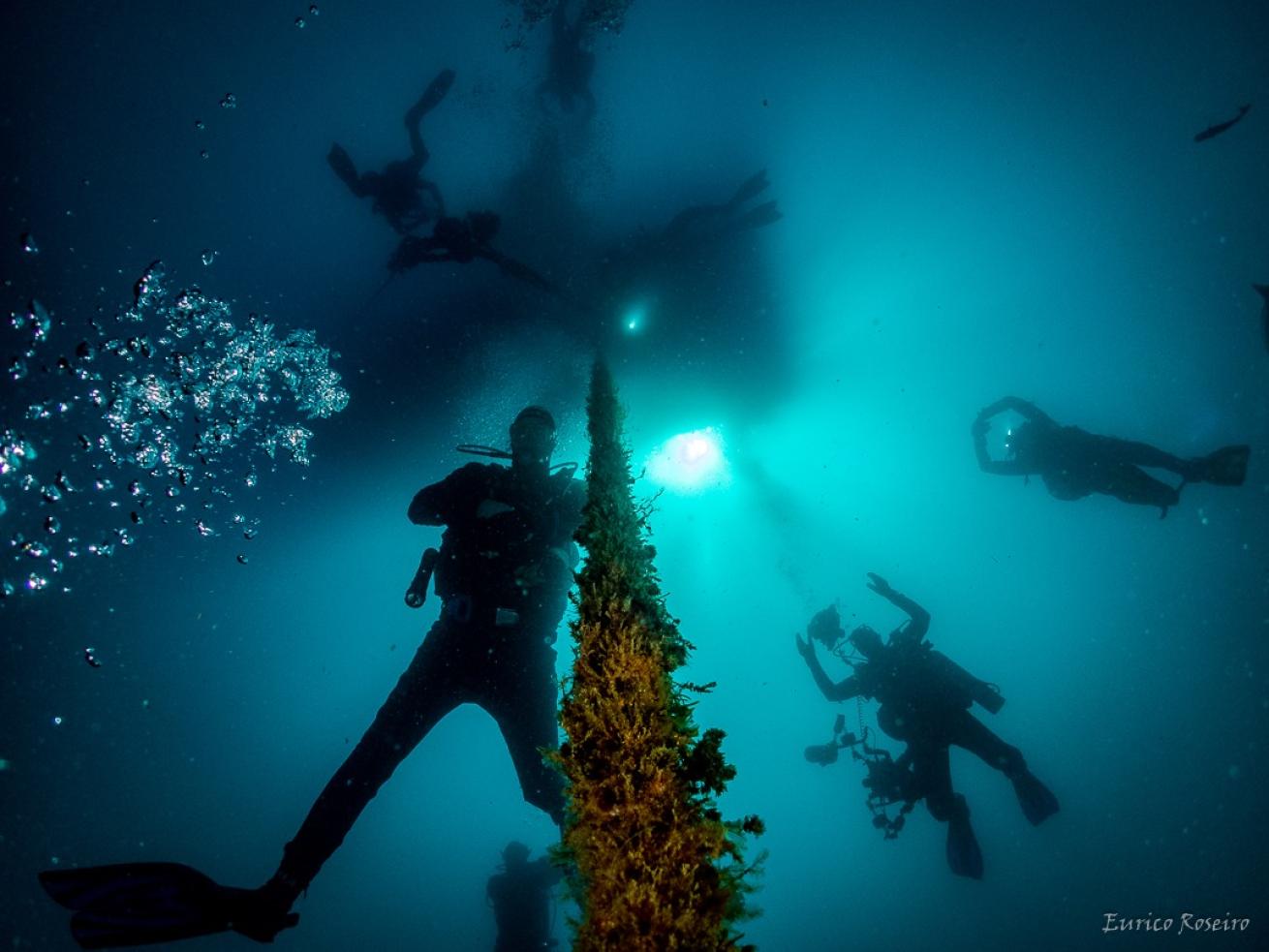
Courtesy Eurico RoseiroDivers descend to the dive site in Berlengas Archipelago.
CASCAIS
Just 20 miles west of Lisbon proper, Cascais is another famed Portugal surf town that lures divers seeking thrills under the waves, too. Photographers train their lenses on a small species of shark that’s commonly seen at the dive site called Pata Roxas, where the sandy seabed meets rocky outcroppings. Topside, Cascais brims with lively cafes and restaurants for enjoying a cold beer—all within walking distance of the dive boats at the Clube Naval de Cascais for when you’re ready to toast another great dive day done.
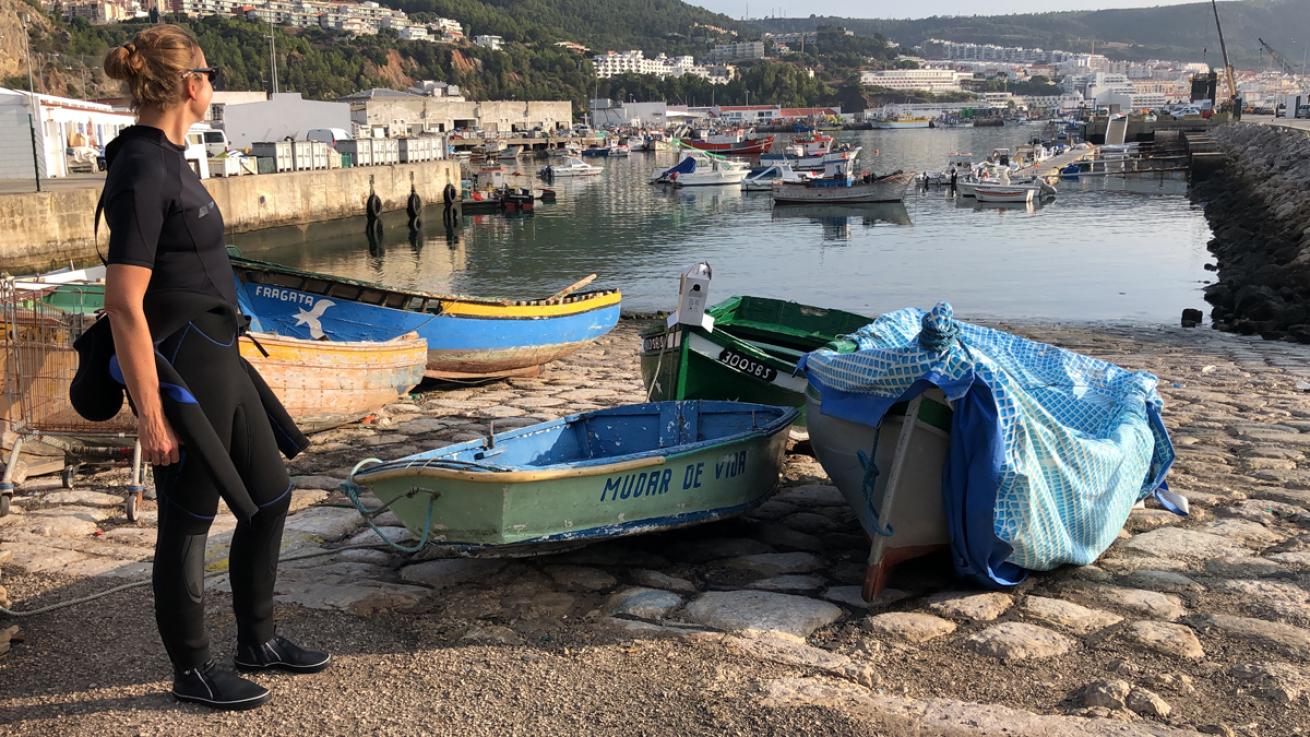
Courtesy Terry WardThe author takes in the view while in port during a surface interval.
IN LISBON
Where to Stay: Lisbon has a wide range of luxury hotels, small inns and Airbnbs. I loved making my base the Lisbon Plaza Hotel, right in the heart of the city along the Avenida da Liberdade, within easy walking distance of shopping, restaurants and public transport.
Where to Eat: You can’t come to Portugal without trying bacalhau (salted cod). Attached to a new museum dedicated to the fish's rich history (the Centro Interpretativo da Historia do Bacalhau) is an excellent restaurant serving cod cheeks, tongues, Pasteis de Bacalhau and other specialties best enjoyed after a day of diving with a chilled glass of vinho verde. Onsite at a circus school, Chapitô is a favorite Lisbon restaurant with locals and has some of the best city views as well as great Caipirinhas.
Where to see Fado: To listen to the quintessentially Portuguese music performed live, there’s no place like Senhor Fado, says Serrao. "You can find tourists here, but Portuguese fado lovers occupy the majority of the tables,” he says. “Fado is like the blood for urban Lisbon culture.”


